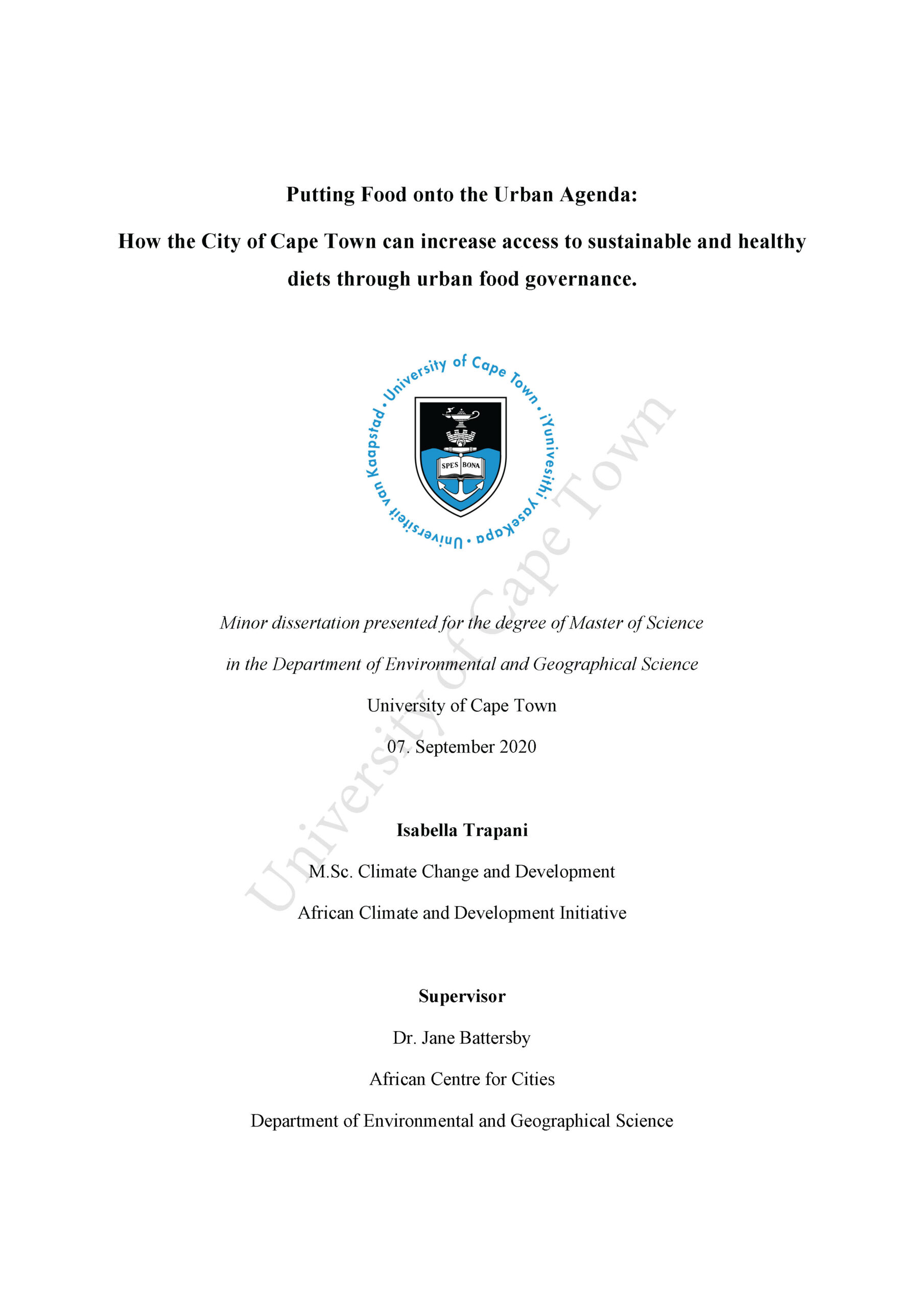– Master Thesis –
Rapid population growth, rising urbanisation, globalisation and technological progress have fundamentally changed how we produce and consume food. The majority of urban diets are now dominated by low intakes of fruit and vegetables and high intakes of highly processed, energy-dense and nutritionally poor foods. In Cape Town, South Africa, the impacts of this nutritional transition manifest themselves not only with hunger and undernutrition but also with overnutrition. Due to structural barriers in cities limiting access to healthy food, the urban poor are disproportionally affected by nutrition-related diseases. In addition to the impacts on human health, modern dietary patterns and food production significantly contribute to climate change, land-use change, deforestation and biodiversity loss, all of which threaten food and nutrition security. Considering these severe impacts on planetary health, urgent action enabling access to sustainable and healthy diets becomes imperative on both global and local scales. Local governments are at the forefront of the urban food challenge and can intervene through urban food governance; however, in South Africa, the food mandate is held by the national and provincial governments. This study reveals the strategic role the City of Cape Town can play when leveraging its constitutional powers, especially through mainstreaming food considerations into all municipal policies and processes, sustainable and healthy public procurement, regulating the private sector and supporting informal trade, encouraging sustainable local small-scale production of healthy food and the establishment of food gardens, expanding the local market structure, as well as through providing nutrition education. This research finds that despite the absence of an urban food mandate, there is great momentum for food to become a priority in the City of Cape Town. Remaining institutional challenges such as the lack of understanding of food security and the food system, political will, funding, capacity, and policy coherence must be overcome to tackle the urban food challenge. Multi-stakeholder collaboration was identified as a key element of effective urban food governance and should therefore be strengthened.

